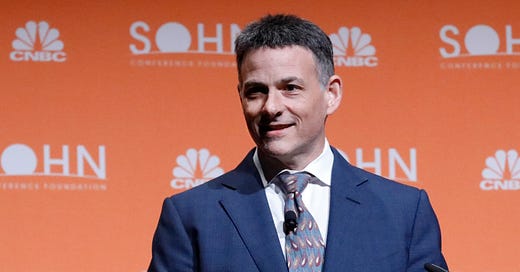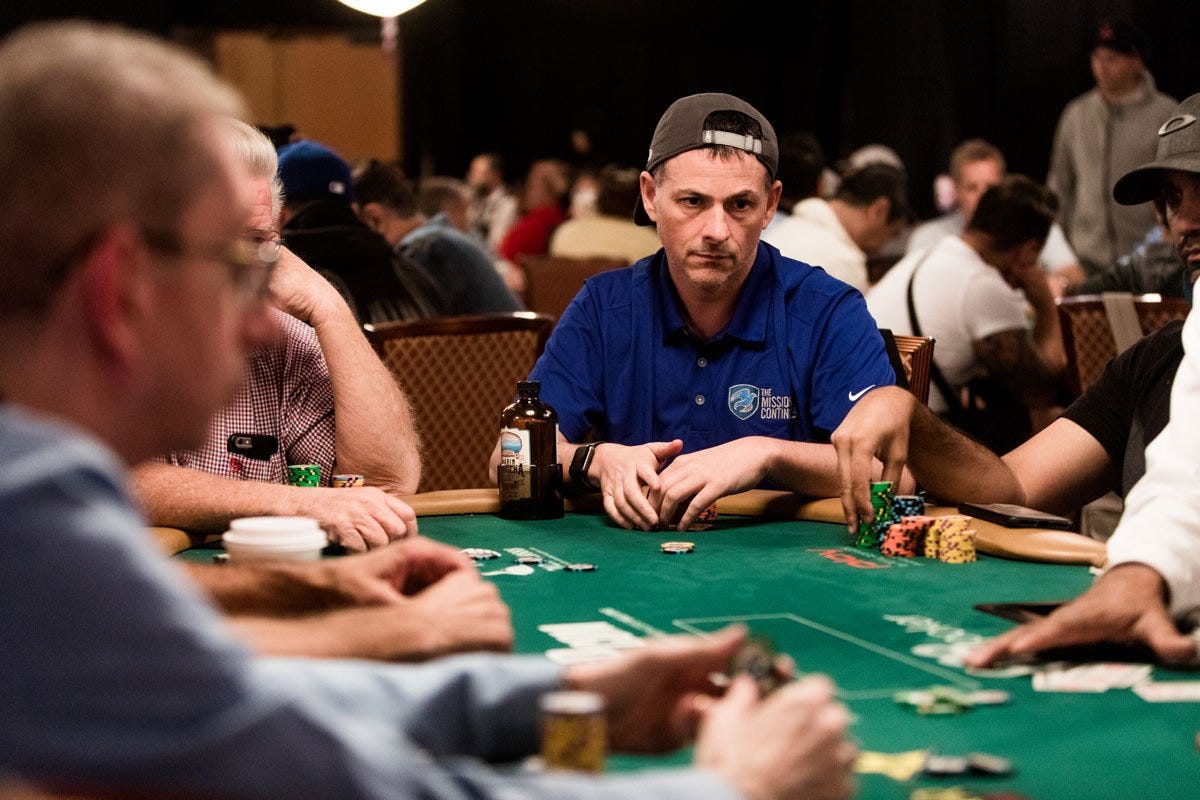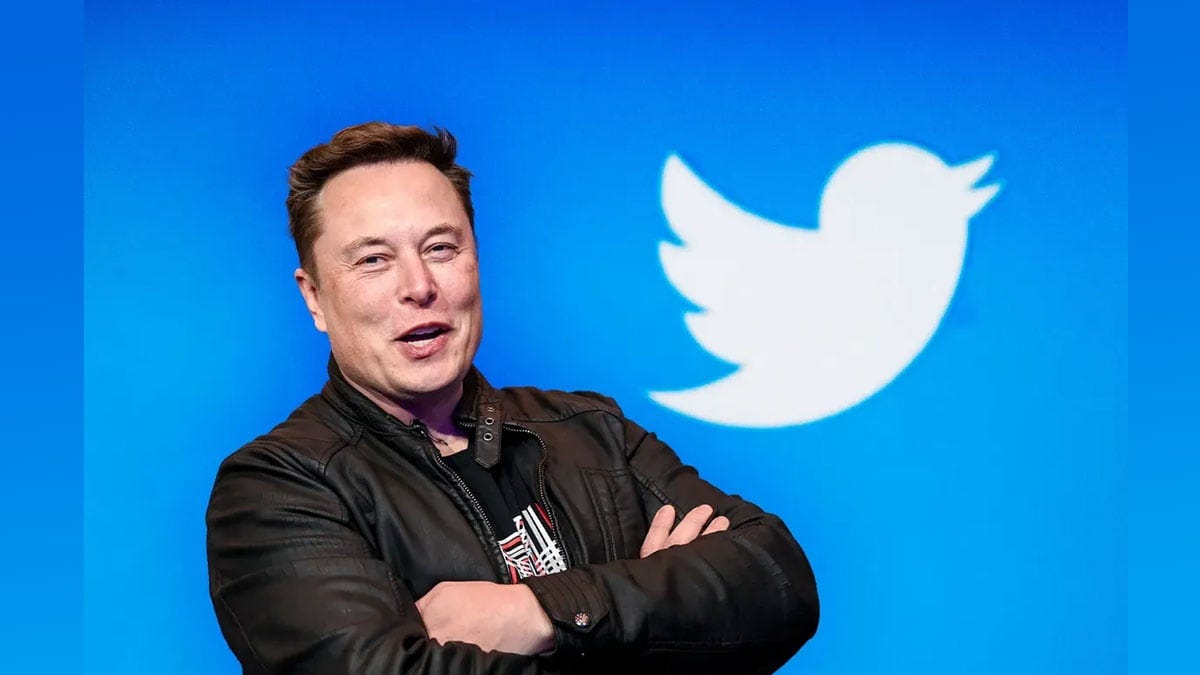After graduating summa cum laude from Cornell University in 1991 with a B.A. in Government, David Einhorn went on to found Greenlight Capital just five years later. In May of 1996, Einhorn started the hedge fund with just $900,000 in initial seed capital. Adjusted for inflation, that’s worth about $1.7 million today.
In 2002, Einhorn made headlines after recommending Allied Capital as a short at the Sohn Investment Conference. He disclosed that he was personally short, and shares of the company fell by 20% the next day.
Einhorn alleged that Allied was using deceptive accounting practices to inflate the prices of its assets, while Allied quipped back that Einhorn was engaging in market manipulation. In 2007, Einhorn emerged victorious after the SEC charged Allied with violating securities laws relating to accounting practices and the valuation of illiquid securities it owned.
As a noted philanthropist, Einhorn donated all $7 million of the general partner's profits from the Allied short to Tomorrows Children's Fund, The Project On Government Oversight (POGO) and the Center for Public Integrity (CPI).
Einhorn recently spoke at the 2022 Sohn Investment Conference. You can read his full highlights here:
In July of 2007, the fund manager took a short position in the now defunct Lehman Brothers. Einhorn rationalized that Lehman carried massive exposure to risky, illiquid real estate investments. He also believed that the bank used manipulative accounting practices to boost its numbers. In November of that year, he shared his short thesis publicly at the Value Investing Congress conference. In September of 2008, Lehman filed for bankruptcy.
However, Greenlight experienced a major setback in 2012 after the U.K. Financial Services Authority (FSA) charged the fund $11.2 million for insider trading. The agency claimed that Einhorn obtained and traded on information relating to an equity raise by Punch Taverns prior to the information being publicly disclosed. Einhorn sold more than 11 million shares before the raise was announced, saving more than $5.9 million. Punch Taverns declined by about 30% following the announcement.
Einhorn never admitted to wrongdoing, but agreed to pay the fine “rather than continue an arduous fight.”
The insider trading fine was the start of several rocky years for Greenlight. In 2015, the fund declined by 20%, followed by a 34% drawdown in 2018. These returns were attributed to short bets on Tesla TSLA 0.00%↑, Amazon AMZN 0.00%↑, Netflix NFLX 0.00%↑, and a 74% drop in SunEdison, a solar and wind energy company that has since gone out of business.
Einhorn has also been accused of sticking to his “old ways” of buying beaten down value companies in a time when high growth companies have soared.
Based on data from Bloomberg, Greenlight still needs to return 14% to get back to 2015-breakeven levels. From 1996 to 2018, the fund gained a net of fees annual return of 15.4%.
Einhorn’s Poker Side Hustle
According to Hedge Fund Hold ‘em a study published in the Journal of Financial Markets, hedge fund managers who had won at least one poker tournament had an average monthly raw return of 0.67%, outperforming the 0.58% return of their peers who had never won a tournament. In addition, managers who won higher in rank or money demonstrated even an even higher level of outperformance.
There is evidence to support this finding, such as patience and the disposition effect. Fund managers who excel in poker may have more patience in holding their winning positions longer. On the other hand, the disposition effect may cause you to hold losing investments too long in hopes of breaking even, while selling winners too quickly. Fund managers who can overcome this effect in investing may succeed in poker as well.
Still, there’s a downside to fund managers who win poker tournaments. The study notes that fund managers likely receive an inflow of liquidity following wins in highly publicized tournaments, such as the World Series of Poker. After receiving these inflows, fund alpha compared to a sample of peers “decreases significantly.”
The authors of the study suggest that this could be the result of decreasing returns to scale or investments in index constituents with the new capital.
While the sample size of this study is limited, Einhorn’s love of Poker is an interesting case study.
In 2006, he finished 18th at the World Series of Poker main event and donated his winnings of more than $650,000 to the Michael J. Fox Foundation, a non-profit focused on finding the cure to Parkinson’s disease.
Six years later, Einhorn bought a $1 million seat at the World Series of Poker Big One for One Drop tournament. He ended up winning the third place prize of $4,352,000 and donated the proceeds to the educational non-profit City Year.
Greenlight Capital
In the first half of 2022, Greenlight returned 13.2%, compared with a 20% decline in the S&P 500. As of Q1, it had $1.57 billion in 13F assets under management (AUM). Back in 2017, the hedge fund boasted a AUM of almost $10 billion.
A further breakdown of first half returns:
Here are Greenlight’s top 5 positions as of June 30th, with added commentary from Einhorn:
Atlas Air Worldwide AAWW 0.00%↑
The shares ended the quarter at $61.71. This is about 65% of book value and less than 4x consensus earnings. The company has bought back 4% of the stock this year and has authorized another 6% buyback.
Brighthouse Financial BHF 0.00%↑ .
The shares ended the quarter at $41.02. This is about 25% of book value and less than 3x consensus earnings. We expect the company to repurchase 10-
20% of its shares this year.
CONSOL Energy CEIX 0.00%↑
The shares ended the quarter at $49.38. Though it trades at a nosebleed 2.6x book value, we expect the company to generate approximately $50 per share in after-tax free cash flow by the end of 2023. Capital returns have not yet begun, but we expect they will shortly.
Green Brick Partners GRBK 0.00%↑
The shares ended the quarter at $19.57. This is about 1.1x book value and less than 4x consensus earnings. The company bought back 5% of its shares as of its last quarterly announcement and authorized another buyback of an additional 10% of the shares.
Teck Resources TECK 0.00%↑
The shares ended the quarter at $30.57. This is about 85% of book value and less than 4x consensus earnings. The company recently began buying back its
shares. When the CEO was asked on the April 27th quarterly call what the plans were for playing his “really strong hand of cards here,” he responded with, “I’d like to buy the whole company back myself.”
Greenlight carried 127% gross long exposure at the beginning of the year. As of June 30, the exposure had shrunk down to 86%. Einhorn believes we are the in midst of a bear market, so therefore it is necessary to keep some dry powder for potential future opportunities.
Greenlight - Quick Stats
Top 10 Holdings as a % of 13F Portfolio: 69.72%
Number of Positions: 52
Average Holding Period: 5.25 quarters
Top 10 Positions Average Holding Period: 8.1 quarters
Top 20 Positions Average Holding Period: 5.5 quarters
Twitter Stake
“We purchased a position in TWTR at an average of $37.24 per share. At this price there is $17 per share of upside if TWTR prevails in court and we believe about $17 per share of downside, if the deal breaks. So, we are getting 50-50 odds on something that should happen 95%+ of the time.”
In the past, Einhorn has butted heads with Musk on Twitter TWTR 0.00%↑ and even held a short position against Tesla, which is no longer active today. Now, Einhorn has taken a long position in TWTR.
Twitter and Musk’s legal battle will kick off on October 17th at the Delaware Chancery Court and conclude on October 21. Meanwhile, the judge presiding over the case, Chancellor Kathaleen McCormick, is known for her “quick work.” Legal experts predict that she will side will Twitter and force the acquisition to follow through. In the past, McCormick has ordered buyers to close deals that they reneged upon.
McCormick assigned the case to herself and is also the presiding judge in another upcoming multibillion-dollar lawsuit related to Musk. In that case, a TSLA shareholder claims that Tesla’s board violated its fiduciary duties by awarding Musk a $56 billion compensation package in 2018. A trial has been scheduled for October.
Last year, McCormick ordered Kohlberg & Co. to follow through with its acquisition of a cake-decoration company. Kohlberg argued that the coronavirus pandemic allowed it to walk back on its acquisition. McCormick wasn’t convinced and ordered the company to follow through, which it did the following month.
Einhorn notes that in the event of a Musk victory, the Chancery court will “invite many future buyer’s remorse suits.” He adds:
“The Delaware Chancery Court has spent years developing case law relating to merger agreements. The resulting precedent and clear understanding of buyers’ contractual obligations has created a great deal of predictability in this sphere. It will be up to Chancellor McCormick to follow that precedent and protect the sanctity of the court. We like the risk-reward that she will.”
If McCormick rules in Twitter’s favor and forces the completion of the acquisition at $54.20 per share, Einhorn will stand to gain a 45.5% return on his recently acquired TWTR position.
Einhorn’s Outlook
“We continue to believe that we are in a bear market. The large declines in the major indexes in the first half of the year make that an obvious statement at this point. However, the tone of the bear market shifted in the second half of June. For a number of months, our portfolio, which is positioned to benefit from inflation, did just that. In mid-June the bear market broadened and inflation beneficiaries fell sharply.”
Einhorn says that falling prices of commodities have led some investors to believe that inflation has peaked. In Greenlight’s Q2 Shareholder Letter, he notes that inflation swaps suggest that inflation will be less than 4% in the next 12 months and less than 3% after that. Einhorn also points out that July’s inflation data will be “softer than any we have seen in recent months.” However, he characterizes this as “transitory disinflation.”
While a decline in food and energy prices may lower headline inflation, Einhorn believes that the “stickier components” of inflation will remain, such as rent and the prices of wages and services. During June, dental care prices rose by 2%, which is “unlikely to reverse.”
“Further, the possible premature celebration of the end of inflation is likely to cause more inflation. Financial conditions are much less tight than they were a month ago, and since the Powell press conference, commodities have begun to recover. Should that continue, headline inflation acceleration may resume as soon as the August report.”
Hedge Vision - Institutional Insights
Please don’t hesitate to send me topic recommendations, suggestions, or general questions. You can contact me by email: HedgeVisions@gmail.com, or by Twitter messages @HedgeVision








